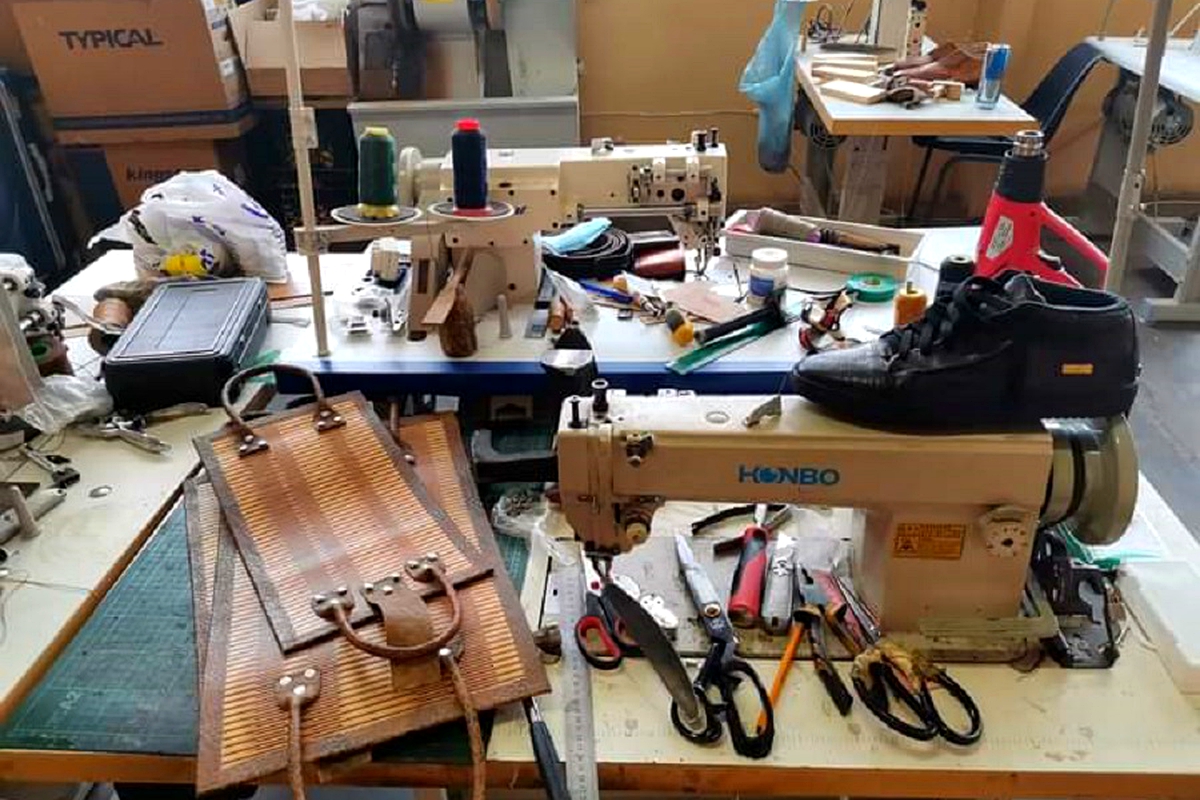INSPIRED by South African self-taught shoe-maker, Ike Lekgoro, rising entrepreneur, Ezekiel Leronti has established a viable small scale garment factory in Mantšonyane, a small rural town in Thaba-Tseka.
business
Feb. 26, 2022
KABELO MASOABI
4 min read
Making business work in the mountains

Inside Ike Lekgoro's small leather workshop
Story highlights
Former factory worker in the hustle and bustle of Maseru, Mr Leronti develops and produces different types of clothes, including work-wear such as overalls, waterproof coats, wind break jackets, leather boots and customised brands on demand.
“The population residing in rural villages and small towns provides opportunities to start new businesses and there’s less competition here,” he says.
Mr Leronti says he once took a business trip to Limpopo in South Africa, where he met a middle aged entrepreneur named Ike Lekgoro.
A handicraft artiste who utilises leather to manufacture traditional luxury man’s footwear, belts, and wallets, the South African businessman had been unemployed for 10 years until he started his own clothing factory in his township.
Starting with one sewing machine, he now boasts 23 of them.
“The man realised his potential and used it wisely and as we speak, his business is operating at national level,” says Mr Leronti.
“I mean you have to begin somewhere.”
Mr Leronti who holds a certificate in Business Management says the high unemployment rate in Lesotho forced him to think strategically until entrepreneurship crossed his mind.
A desire to break the chain of unemployment became his driving force and that was when he decided to establish a small factory in Mantšonyane.
“First of all, identify your market opportunity and ask yourself this question: what do the people in this area need?” he says.
“Is there a gap in the market for a particular product or service that no one else is providing? Or is there very little competition for your business idea in the area?”
As he planned the business, Mr Leronti says he realised the indigenous people of the area were in desperate need for a professional tailoring service.
The 43-year-old says people living in the mountain areas often prefer protective clothing like work-wear over fancy fashions because they work in the fields while others herd livestock.
“Although these items get worn out after a long time, the gap I saw was that many stores here sell typical outfits made of cheap fabrics and my idea was to step ahead by providing genuine designs,” says Mr Leronti.
“But then the other question was: can I provide this product at a rate that people in this area can afford?”
He says you have to use your local knowledge of the area to identify what product or service will bring the most benefit to a particular community.
Enjoy our daily newsletter from today
Access exclusive newsletters, along with previews of new media releases.
“Ensuring that your business is legally and financially compliant with the relevant regulations, right from the start, is as important as securing funding,” he notes.
“If it is not properly registered with the Lesotho Revenue Authority (LRA) and other relevant government ministries, your business will not have a legal standing and you will not be eligible for many forms of business funding and other financial incentives.”
Mr Leronti describes the harnessing of the power of mobile technologies being equally important in rural areas as in urban in that they offer customers with easier payment options, creating another way of expanding earning opportunities.
For example, he says M-Pesa and EcoCash points of sale give a customer an easy, convenient way to pay for goods and services without the risk of having to carry cash around over long distances.
“The need for posting content on social media platforms such as Instagram and Twitter is not as great as you will probably serve a more regular customer base of community members,” he also says.
“However, one has to think of clever ways to harness the power of social media to get messages to customers in a speedy, effective manner.”
He says creating a WhatsApp group chat for one’s regular customers, could let them know directly about any specials or product announcements one wishes to make.
“One of the key features of successful rural businesses is their ability to serve the particular needs of their community,” says Mr Leronti.
“You can use social media as an easy way to get direct feedback from your customers and find ways of tailoring your business to give them more of what they want and need.”
Tailored for you






